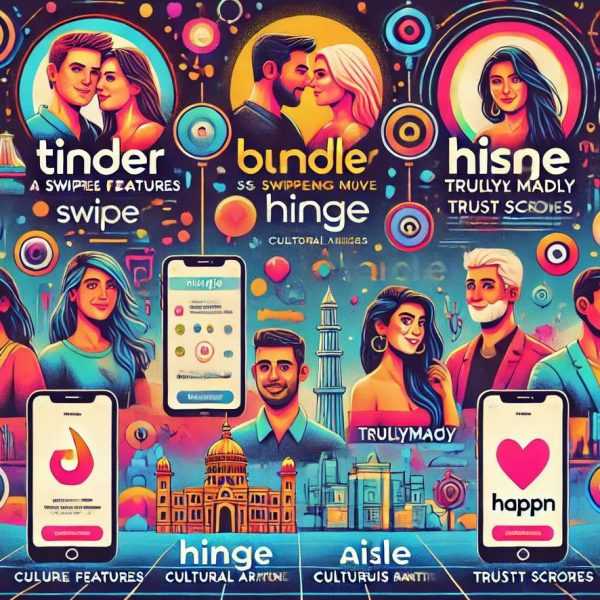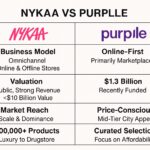OkCupid vs. Coffee Meets Bagel vs. eHarmony vs. Match.com Dating apps
August 16, 2025
Industry: Dating app

OkCupid leads on personalization and inclusivity, Coffee Meets Bagel values quality over quantity, eHarmony builds relationships via compatibility algorithms, and Match.com offers broad reach with legacy trust. Each caters to distinct dating goals in 2025
Introduction
The online dating landscape in 2025 is both vast and varied. While freshly emerging platforms continue to capture headlines, legacy players like OkCupid, Coffee Meets Bagel, eHarmony, and Match.com remain relevant by offering diverse experiences—from inclusive profile matching to curated daily connections. This article analyzes how each adapts to evolving user preferences, market dynamics, and opportunities for investors diving into relationship-tech.
Industry Context: 2025 Dating App Market
- Global revenue in the dating sector is projected to exceed USD 11 billion by 2030, driven by mobile access and social acceptance of online relationships.
- Growth is especially strong across North America, Europe, and rapidly expanding in APAC regions.
- Users increasingly seek platforms that prioritize matchmaking depth, trust, and meaningful engagement over casual swiping.
Platform Profiles
OkCupid: The Inclusive Personality-Matcher
OkCupid remains a pioneer in data-driven match personalization. It stands out with comprehensive personality questionnaires, fluid gender and orientation options, and algorithmic matching based on values and preferences. These features drive user retention and engagement.
Strengths: High match quality, inclusive features, strong brand legacy.
Risks: Feature-heavy interface may overwhelm casual users; monetization complexity.
Investor Insight: Positioned well for sustainable engagement and retention, especially among younger demographic segments.
Coffee Meets Bagel: Curated Connections, Less Swipe Fatigue
Coffee Meets Bagel pares down the matching process—users receive a limited number of algorithm-curated matches daily. The app emphasizes meaningful connections, with icebreakers and preference-based curation that amplifies perceived quality.
Strengths: Encourages focused interactions, higher intent matches, lower fatigue.
Risks: Slower user growth; premium features may filter out casual users.
Investor Insight: Strong for user lifetime value; needs scale in high-intent urban markets to monetize effectively.
eHarmony: Compatibility via Deep Profiling
eHarmony sets itself apart with a long-established focus on compatibility-based matchmaking, powered by user questionnaires emphasizing personality and values alignment. It appeals to users seeking long-term commitment.
Strengths: Proven matching methodology, serious-user base.
Risks: High onboarding time; less appeal for casual daters.
Investor Insight: A niche but profitable platform if it can balance accessibility with depth.
Match.com: Legacy, Variety & Volume
Match.com offers a wide user base, cross-platform features, and tools for both casual encounters and serious relationships. It still leads in monthly active users due to diversified access, credibility, and trusted dating features.
Strengths: Broad reach, event-based matching, brand recognition.
Risks: Stiff competition from mobile-native challengers; retention challenges.
Investor Insight: A steady play with diversification opportunities, especially for consolidation in dating-tech.
Market Comparison Snapshot
| Platform | Focus | Strengths | Challenges | Ideal For |
|---|---|---|---|---|
| OkCupid | Inclusive key-value matching | Deep personalization, modern ethos | Heavy description, complex onboarding | Values and identity-focused users |
| Coffee Meets | Curated daily matches | Quality-first, fatigue-minimized interaction | Growth constraints, premium reliance | High-intent singles seeking connection |
| eHarmony | Long-term compatibility | Depth of matching, emotional connection | Lengthy signup, niche segment | Committed relationship seekers |
| Match.com | Broad access & legacy reach | Volume, features, offline events | Mobile-first rivals, retention fade | General and scale-focused users |
User Behavior & Trends
- Safety, profile verification, and photo moderation are now standard expectations—not luxuries.
- Mobile usage dominates; seamless UI/UX matters more than ever.
- Niche trust-centric platforms like eHarmony and Coffee Meets maintain loyalty by avoiding oversaturated swiping.
- OkCupid and Match.com retain relevance by layering innovation onto proven value propositions.
Investor Outlook
- OkCupid: Strong retention-oriented model with brand depth and cultural resonance.
- Coffee Meets Bagel: High LTV potential in curated matchmaking; scaling remains strategic.
- eHarmony: Aligned with offline dating principles—resilient but must attract younger users.
- Match.com: Defensive asset; likely candidate for consolidation or diversification strategies in dating-tech portfolios.
Future Trends (2025–2030)
- AI-driven matchmaking: Smarter suggestions based on behavior, language cues, and preferences.
- Offline integration: Events and meetups will become regular value-adds.
- Niche expansion: Hybrid models, faith-based, LGBTQ+, or interest-based verticals will grow.
- Consolidation: Expect M&A activity as these platforms seek scale and feature integration.
Conclusion
The dating app space of 2025 is vibrant yet nuanced:
- OkCupid wins on inclusion and personalization.
- Coffee Meets Bagel excels on curated, intentional matching.
- eHarmony stays strong among serious relationship seekers.
- Match.com combines scale with maturity and multiple matching modes.
For investors and users alike, balancing scale, engagement depth, and innovation provides strong footing in a fast-evolving romance-tech era.








